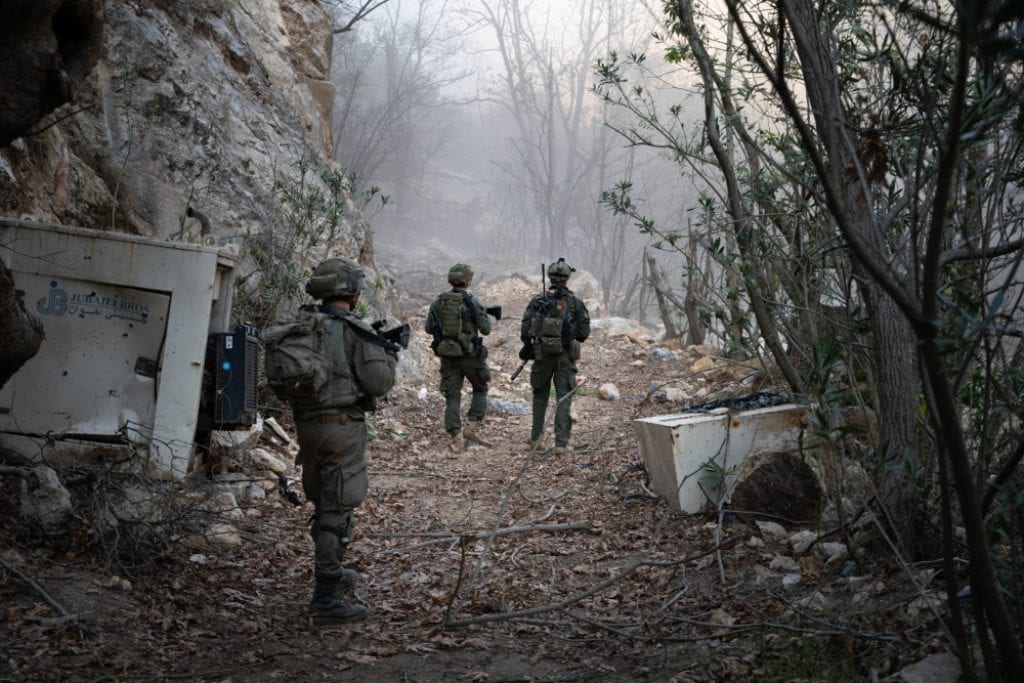
Israel moved one step closer to a ceasefire in Lebanon on November 26. Israeli Prime Minister Benjamin Netanyahu brought to his cabinet a ceasefire proposal that had been in negotiations in recent days. Netanyahu said in a statement that he had promised Israel victory and “we will achieve victory.” He described a complex, multi-front war in which the fight with Hezbollah was the “seventh front.” The other fronts include Iran, Gaza, the West Bank, Yemen, Iraq, and Syria.
Netanyahu described the background of the fighting in Lebanon, which intensified when Israel launched Operation Northern Arrows on September 23. On October 1, the Israel Defense Forces (IDF) launched a limited ground operation in Lebanon that has mostly sought to comb through border villages and remove immediate Hezbollah threats near the border, such as anti-tank missiles and short-range rocket launchers.
“Hezbollah decided to attack us from Lebanon on October 8th [2023]. A year later, it is not the same Hezbollah. We have pushed them decades back. We eliminated Nasrallah, the axis of the axis. We have taken out the organization’s top leadership, we have destroyed most of their rockets and missiles, we have killed thousands of terrorists, and we demolished their underground terror infrastructure abutting our border, infrastructure they had been building for years,” Netanyahu said.
Israel set itself several goals for the wars in Gaza and Lebanon. Among them is one stated goal in the conflict with Hezbollah: Israel wants to enable around 60,000 people who were evacuated in October 2023 to return to their homes in northern Israel. “The war will not end until we realize all its goals, including the return of the residents of the north safely home,” Netanyahu claimed.
Israel expects that the ceasefire, supported by the United States, will enable the IDF to “maintain full freedom of military action.” This means that if Hezbollah seeks to re-arm, again threaten Israel, or rebuild sites near the border, then Israel may attack the group. “If it launches a rocket, if it digs a tunnel, if it brings in a truck carrying rockets, we will attack,” Netanyahu added. In this regard, Israel has set itself a difficult mission, because preventing Hezbollah from obtaining weapons, as Netanyahu spelled out in his vows regarding the agreement, will be challenging. “We will respond forcefully to any violation,” the Israeli prime minister said.
If the ceasefire is successful in Lebanon, Israel will be able to focus on the Gaza front and on enabling reservists to return home. Many Israeli reservists have been called up for more than 10 months out of the last 13 months of war. Five IDF divisions, including around 15 brigades, have seen action in southern Lebanon. Among the reserve units that fought in Lebanon are the 2nd Carmeli Infantry Brigade, the 3rd Alexandroni Infantry Brigade, the 9th Oded Infantry Brigade, the 228th Alon Infantry Brigade, the 8th HaZaken Armored Brigade, the 205th HaBarzel Armored Brigade, and the 226th Paratroopers Reserve Brigade. Even though a large number of units participated in the operations in southern Lebanon, the overall ground operation remained relatively small in most areas, consisting of cautious advances up to several miles into Lebanon to take control of border villages and search for terrorist infrastructure.
The IDF added some details about units that have participated recently in fighting in southern Lebanon. The elite Shaldag Unit, an Israeli Air Force special operations unit, conducted raids with the Golani Reconnaissance Battalion. The IDF said these activities took place near the Litani River, which stretches across southern Lebanon. “The Shaldag Unit operated to locate and destroy Hezbollah terrorist compounds, which had been used in recent months to launch dozens of terrorist attacks against the State of Israel. During the activity, the troops raided several targets above and below ground.” The soldiers found short- and long-range rockets as well as other sites Hezbollah used to store weapons.
In another area of Lebanon, north of the Israeli community of Metula, the IDF’s 98th Division and Commando Brigade continued attacks on Hezbollah sites. “Over the past week, the Commando Brigade identified and eliminated an armed terrorist cell, including Hezbollah’s regional commander in the area,” the IDF said.
The ground operations were combined with increased airstrikes on Beirut on November 26. The IDF warned residents of numerous buildings to evacuate as strikes continued throughout the day. The expectation in Israel was that the ceasefire would take effect during the morning of November 27, meaning that these rounds of airstrikes are expected to be some of the last in roughly two months of intense fighting.







